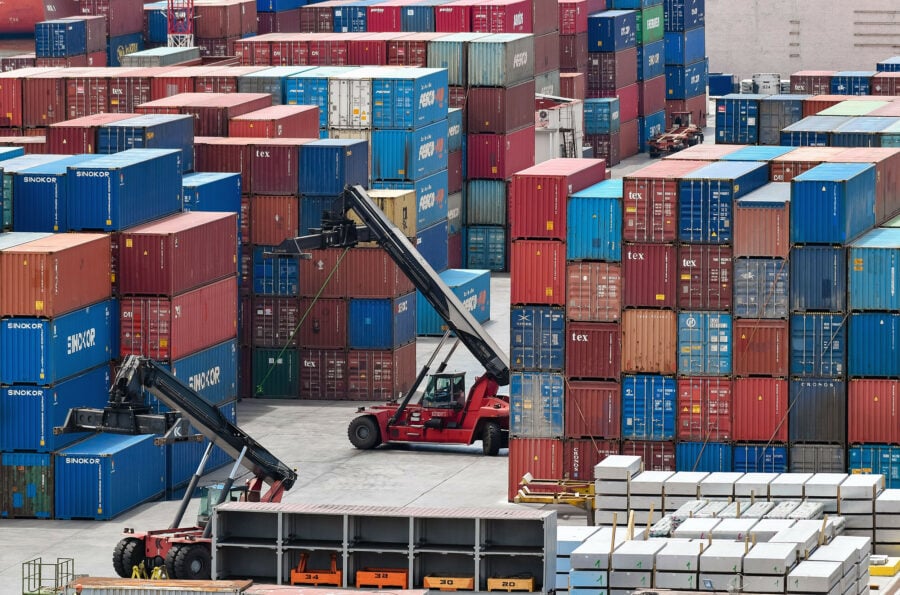Global freight rates declined during Q1 of 2022 due to a dip in demand for freight transport following an increase in global inflation due to the outbreak of the Russian-Ukrainian war.
According to an official source from one of the international shipping lines, sea freight charges fell by 25 percent in Q1 of 2022, owing to a lack of production in China As diseases continue to spread.
The source pointed out the drop in demand for shipping products in European and American countries following the outbreak of the Russian-Ukrainian war at the start of this year, which triggered a global wave of inflation, and contributed to the weak demand for shipping goods.
According to Maher Yousef, a member of the Amman Chamber of Commerce board of directors, freight prices from China’s Shenzhen port to Jordan’s port of Aqaba dropped dramatically in late April, from $7,000 per container to $4.2 thousand.
Youssef indicated that this drop is mainly due to the global drop in demand, in addition to factory closures in China.
He added that the Chinese Chamber of Commerce confirmed the current closure of Chinese cities in order to confront the re-emergence of the Corona epidemic in China. Youssef further noted that the inability of workers and business owners to move from one city to another, in addition to factory owners’ failure to purchase spare parts for their machines as a result of the closures resulted in a recession and a drop in demand, prompting even lower freight rates in an attempt to boost production.
Additionally, in the last week of April, shipping prices from China to the US dropped from $12,600 to $8,600 per container.
Moreover, the Chinese Chamber of Commerce revealed that shipping prices from China to Saudi have dropped in April from $7,000 to $4,000.
Supply chains, freight, and goods transport were all in disarray around the world as shipping companies were unable to deal with the increasing demand for consumer products, as well as the port disruptions caused by the Corona pandemic.








